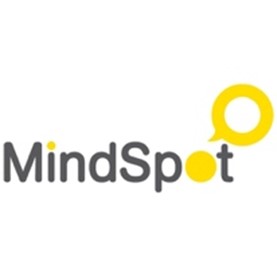Delivering Collaborative Mental Health Care Using Digital Mental Health Resources
-2.jpg)
Digital mental health services are online programs, phone services, digital tools or mobile-based applications that may be self-driven or involve interaction with or guidance from a health professional. These services are ideal as standalone treatment interventions for Australians with mild to moderate mental health symptoms or can be used in combination with face-to-face care. When delivered in combination with face-to-face health care, many digital resources offer unique features, allowing clinicians to work collaboratively with their consumers and with other health professionals.
Often therapists, GPs, Aboriginal and Torres Strait Islander health workers and health care workers might hold concerns that by recommending a digital resource, a client might feel turned away, rejected or that they are impersonal and not working together on defined goals and tasks (Scott et al., 2022). However, research shows that digital mental health interventions are often very well received and can actually improve the therapeutic relationship, giving the client a sense of choice in their own healthcare (Erbe et al., 2017). A minority of consumers, about 10%, actually prefer digital interventions to face-to-face care (Cerga-Pashoja et al., 2020).
Numerous digital mental health interventions also now offer features that support practitioner involvement and collaborative care with other practitioners. Practitioners might have varying roles in a consumer’s mental health journey, from providing information and offering treatment choice, to being a one-on-one therapist involved in long term care. Below is a brief introduction to some free, Australian, evidence-based digital mental health resources, highlighting features that allow health practitioners and Aboriginal and Torres Strait Islander health workers to work collaboratively with their patients or clients and other practitioners and services while using these platforms.
Digital Programs with Practitioner Support
Two Australian, evidence-based programs now offer access to an e-therapist to assist working through treatment modules. Digital mental health interventions with practitioner support can be used to supplement standard mental health care, to provide ongoing support in a therapist’s absence, or for wait list care or relapse prevention. Therapist support programs can be offered to consumers with mild to moderate mental health symptoms alongside crisis support and ongoing monitoring by a health professional as a standalone treatment.
|
Service |
Service Description |
Features Facilitating Collaboration
|
|
MindSpot
|
MindSpot is an online clinic, with online courses for anxiety, depression, OCD, PTSD, chronic pain, chronic health conditions and substance misuse. Programs include assessment, feedback and access to in-house therapists via phone or email. |
GPs and other health professionals can refer a client to MindSpot. MindSpot provides an assessment, treatment program, and monitoring of the client’s safety and progress. Then, in line with their consent process, MindSpot will provide you with the client’s assessment report and treatment updates. |
|
Mental Health Online
|
Mental Health Online offers online programs and information for a range of issues including anxiety, depression, and stress/wellbeing. Programs include assessment, feedback and therapist support. |
Mental Health Online offers free access to program content for health care workers. Health practitioners are able to view the programs, so that these can be used in session or to inspect before referring a patient. |
Digital Services with Practitioner Integration
Some digital mental health interventions offer practitioner interfaces, where a clinician has access to their client’s progress through self-guided modules. This enhances collaboration between practitioner and client and also offers information that can be shared across a treating team.
|
Service |
Service Description |
Features Facilitating Collaboration |
|
This Way Up
|
This Way Up has online CBT programs for depression, anxiety, PTSD, OCD, chronic pain and other targeted programs for specific groups such as teens, perinatal mental health and students. Self-help and own-clinician-assisted options available. |
A Clinician Dashboard allows a practitioner to monitor and supervise a client’s progress, or preview programs and resources. Clinicians receive an email if their consumer is in the “severe” range on measures of psychological distress. The monitoring clinician remains responsible for the client’s wellbeing. |
|
Stay Strong
|
Stay Strong is a therapist-guided app for Indigenous clients with wellbeing concerns, chronic disease or substance misuse problems. |
An app designed to be used with a health worker or clinician in a session. Provides a summary printout that can be documented or shared with consent to other treating health professionals. The app contains optional measures of psychological distress for progress monitoring. |
Digital Services with Parent or Caregiver Integration
When working with children or young people, the involvement of a carer or support person can be invaluable for treatment outcomes and can enhance communication with other health professionals working with the family.
|
Service |
Service Description |
Features Facilitating Collaboration
|
|
The Brave Program
|
The Brave Program is an online program to help children and teenagers (8-17 yrs) overcome anxiety. Comprises both youth and parent components. |
Offers a range of support person integration options. Children and teens are able to complete the program on their own, or with support from a parent or caregiver. |
Before using a program with a client be sure to inspect it thoroughly to make sure that it is safe and evidence-based. For more information on how to locate relevant, evidence-based, free or low-cost digital services, and learn how to use them in practice, visit www.emhprac.org.au.
eMHPrac (e-Mental Health in Practice) is a Government-funded service offering training and support in the use of digital mental health interventions to GPs, allied health professionals and service providers working with Aboriginal and Torres Strait Islander people.
To browse a directory of free, evidence-based mental health tools for tools that target your consumers’ needs visit:

|

|
|
Author Bio
Shelley Appleton, D.Psych(Clin), Clinical Psychologist, eMHPrac team
Dr Shelley Appleton is a Senior Research Officer with the eMHPrac team and a registered clinical psychologist and clinical supervisor. Shelley is passionate about facilitating access to mental health treatments and promoting mental health literacy in the general population. Shelley has over 10 years of experience with the psychology research group where she has worked to evaluate apps, web programs, and phone interventions addressing mental health and substance use disorders. Shelley also enjoys maintaining her role in private practice with children, adolescents, and adults.
References
Cerga-Pashoja, A., Doukani, A., Gega, L., Walke, J., & Araya, R. (2020). Added value or added burden? A qualitative investigation of blending internet self-help with face-to-face cognitive behaviour therapy for depression. Psychotherapy Research, 1-13, 1–13. https://doi.org/10.1080/10503307.2020.1720932.
Erbe, D., Psych, D., Eichert, H.C., Riper, H., & Ebert, D.D. (2017). Blending face-to-face and internet-based interventions for the treatment of mental disorders in adults: Systematic review. Journal of Medical Internet Research, 19(9), e306.
Reynolds J, Griffiths KM, Cunningham JA, Bennett K, Bennett A Clinical Practice Models for the Use of E-Mental Health Resources in Primary Health Care by Health Professionals and Peer Workers: A Conceptual Framework JMIR Mental Health 2015;2(1):e6 URL: http://mental.jmir.org/2015/1/e6/ doi:10.2196/mental.4200
Scott, S., Knott, V., Finlay-Jones, A.L. et al. (2022). Australian psychologists experiences with digital mental health: A qualitative investigation. Journal of Technology in Behavioral Science. https://doi.org/10.1007/s41347-022-00271-5





